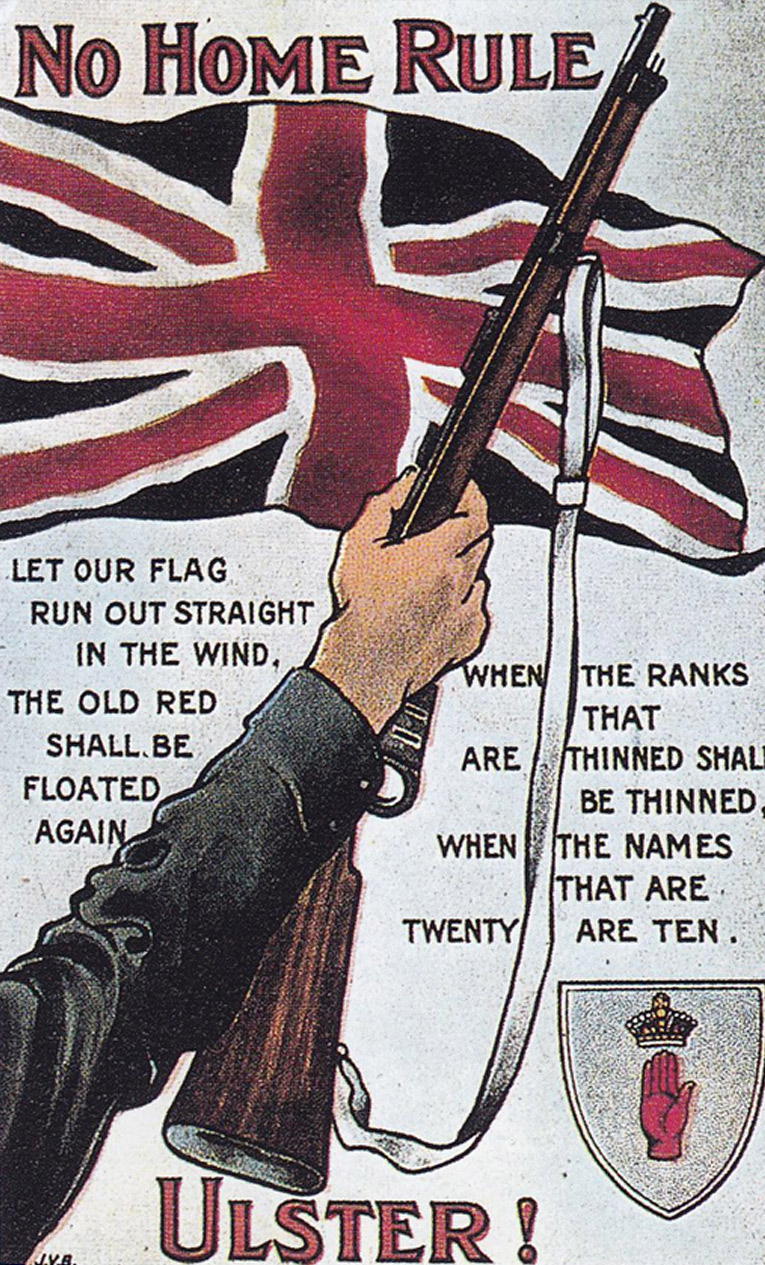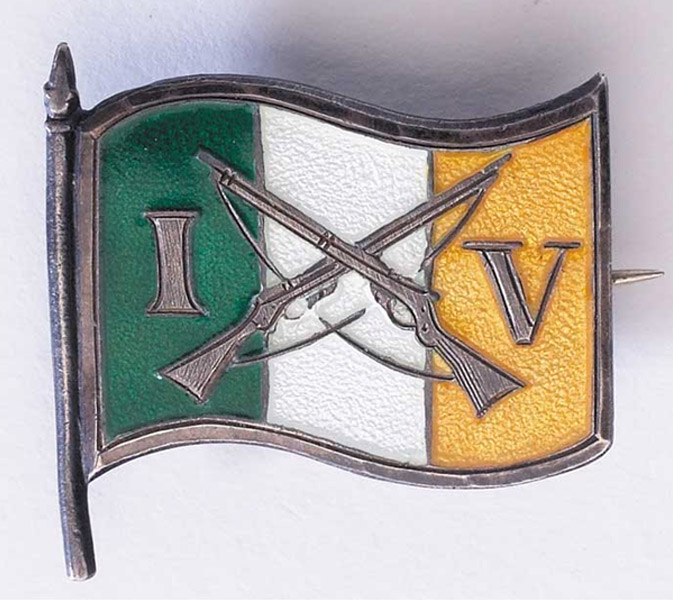
Ulster Unionists
As momentum for Irish Home Rule grew and several Bills in support were put through in the House of Commons fears grew in the northern counties of Ulster that Home Rule would mean a severance from the United Kingdom and the loss of political influence and power by the Protestant majority. Many of these concerns were justified. Religious divisions pervaded throughout society in the length and breadth of Ireland and Ulster Unionists could point out many bad examples of ‘Catholic Ascendancy’ in the south. By 1912 the Home Rule struggle was looking like the generation old ambition of an all-Ireland domestic Dublin based parliament would be achieved, even if of limited powers. Terrified at the prospect of the loss of political power and inflamed by rhetoric and speeches by persons like Sir Edward Carson, matters took a very serious turn and in 1912 Ulster Unionists and their supporters began to arm themselves in organisations like the Ulster Volunteers. The aim was to resist any Home Rule by force. Ireland looked on the real prospect of a civil and religious war.
Irish Volunteers
In response to the Unionist resistance and the threat of armed intervention in the Home Rule process, influential National minded figures from the Gaelic League, the Irish National Foresters and other organisations, supported by members of the Irish Party called for the formation of a counter Irish Volunteer movement in 1913. This had the support of many Members of Parliament, although John Redmond himself was very reluctant to encourage militarism. But such was the enthusiasm for the Volunteer movement that he had little choice but to go with popular opinion. Consummate politician as he was he manipulated the guiding Volunteer committee so that his party would still yield the most influence and be able to direct control of the majority of the Volunteer movement. From 1913 up to the outbreak of war the Irish Volunteers grew in numbers. County Wicklow alone had over twenty branches. The policing and security authorities of the south of Ireland looked on with great suspicion at the growth of the Irish Volunteers. While abhorring the idea of an armed national type militia in the country, they were in no real position to try and suppress such a popular national movement.

